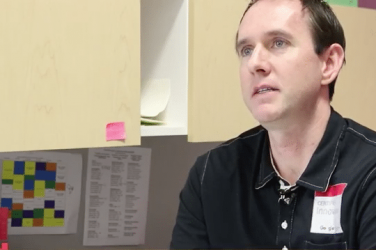For the first time in years, researchers at the University of Georgia observed the majority of its students were choosing not to drink alcohol in 2018.
Instead, UGA has followed national trends researched by the American College Health Association through annual surveys at over 100 universities around the country. According to this data, college students have consistently decreased their alcohol usage throughout the past five years. 67 percent of college students in 2014 reported any alcohol use within 30 days of being surveyed while in 2018, that figure had dropped to 60 percent.
“Historically the majority of our students have engaged in substance use,” Kelly Truesdell, assistant director of community programming at the UGA Fontaine Center, said, “but we saw a shift about three years ago where they are not consuming as much now.”
Why It’s Newsworthy: Lower consumption rates of alcohol and other drugs means students are often choosing to engage in legal and safer activities. This can have a positive effect on crime in the community regarding DUI’s and other alcohol-related offenses. It can also contribute to students preserving their own personal and professional wellbeing.
This decrease in alcohol usage correlated to fewer students getting into legal trouble because of their drinking habits. According to the same ACHA data, the percentages of students who reported both getting in trouble with the police and driving while drunk in 2018 were nearly those same figures in 2014.
The trend of fewer interactions between law enforcement and college students regarding alcohol is also evident at UGA. According to the most recent records made available by the UGA Police Department, there were 37 percent fewer alcohol and drug arrests made in 2017 than in 2012.
UGA students’ decreasing alcohol usage has also resulted in fewer sanctions assigned by the UGA Student Conduct Board related to substance use. According to data collected by the conduct board, the number of students sanctioned by the university with either probation or alcohol and drug education in 2018 was down just over 30 percent from those figures in 2014.
UGA is one of many universities that work with the ACHA every year to administer a survey which monitors multiple health aspects of their respective students. UGA’s Health Promotions department and Fontaine Center work with students to both promote prevention of substance abuse as well as provide treatment for those who need it.
Truesdell, who works with these specific ACHA surveys, believes UGA is one of many schools that has observed more responsible behavior from high school students transitioning to college. She also pointed out the effectiveness of substance-free programs UGA students can attend on campus as a great way to socialize without the pressure to drink.
We are seeing an uptick in participation [in substance-free UGA programs] consistent with the numbers we’re seeing from the decrease in substance use from those national surveys,” Truesdell said.
While she understands partying culture and college tend to go hand-in-hand, Truesdell pointed out there are also many students who choose not to drink. In fact, she said many students are actually starting to push back against the alcohol-infused mentality that can be so prevalent on college campuses. This has been due to the willingness of students actually choosing to find fun ways to socialize without using alcohol or other substances.
For students like Georgia sophomore Claire Ajuebor, who described herself as “not a big drinker”, these social alternatives to drinking are both enjoyable and a way to stay responsible and away from any potential legal issues.
“It’s a great way for you to hang out and have fun with your friends,” Ajuebor said. “Why would I want to go and get something on my record? I’m 20 years old, I can wait a year. I’ll be fine.”
Jack Austin is a senior majoring in journalism in the Grady College of Journalism and Mass Communication at the University of Georgia.








